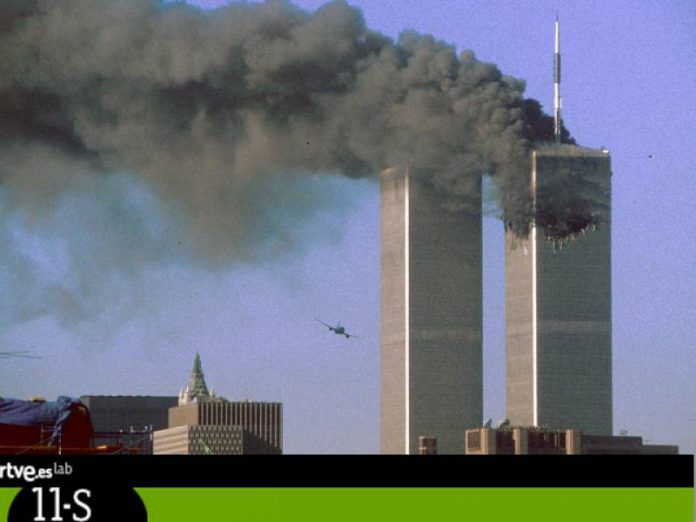Los atentados del 11 de septiembre trajeron el fin de la inocencia histórica a una ciudad, y un país que habían conseguido hasta entonces escapar al escenario de una guerra mundial en su propio territorio. Nueva York, una ciudad históricamente inmersa en el desarrollo económico y urbano del capitalismo, una urbe que tan magistralmente describieron Frank Kafka (América) y John dos Pasos (Manhattan Transfer), con toda su grandeza y su miseria, su dureza y su vértigo, su desmesura y su fascinación. Y los EE.UU., todavía la primera potencia del mundo, a punto de perder su hegemonía, que hasta entonces se creyó invulnerable. Aquel día fue el despertar a una nueva era.
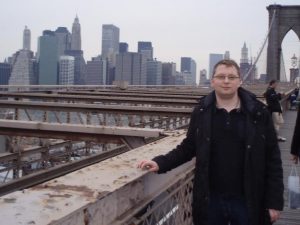
Impalpable e intangible, no deja rastro; misterioso como una divinidad, es inaudible y es así como pone al enemigo a su merced (Sun-Tzu).
En la mañana del 11 de septiembre de 2001 Nueva York sufrió en sus entrañas un urbicidio causado por la violencia terrorista de un enemigo que no respondía a los principios clásicos de la guerra. No hubo ni frente ni campo de batalla donde enfrentarse y, como antes Beirut, Sarajevo o Grozni, la ciudad quedó convertida esa mañana trágica en un escenario de destrucción desolador, causado por la violencia y la barbarie de unos terroristas suicidas.
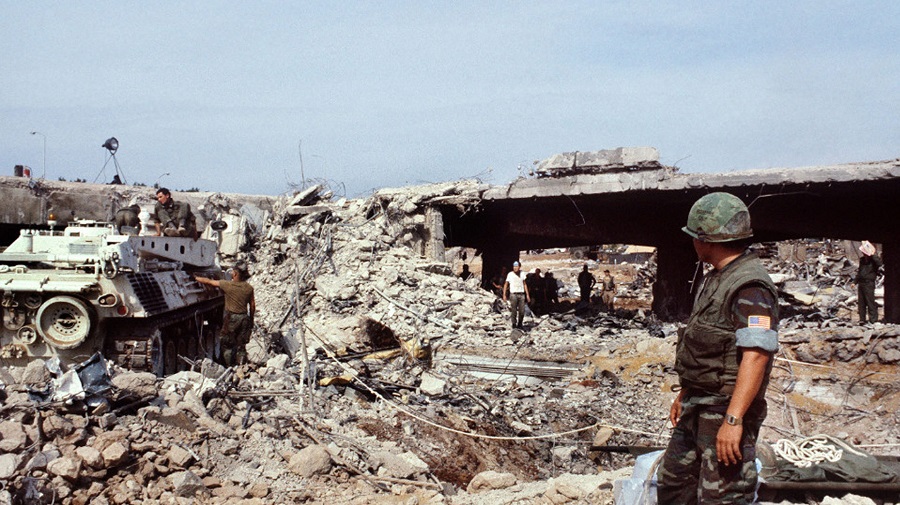
EL AÑO DE 1979
Esta forma de terrorismo como la conocemos hoy hizo su irrupción en la década de los 70, en zonas de confrontación bélica como el Líbano (1975) y Afganistán (1979). En el Líbano verá la luz la organización terrorista Hezbollah, a la que se atribuyó los grandes atentados de 1983 contra militares franceses y norteamericanos. En Afganistán se encontraban los muyahidines (fundamentalistas islámicos) luchando contra los invasores soviéticos, y allí estaban ya los futuros líderes de Al -Qaida, Osama Bin Laden y Ayman al Zawahiri. Los muyahidines contaron en todo momento con el apoyo financiero y logístico necesario por parte de Estados Unidos, Arabia Saudí, y Pakistán en su oposición contra los soviéticos.
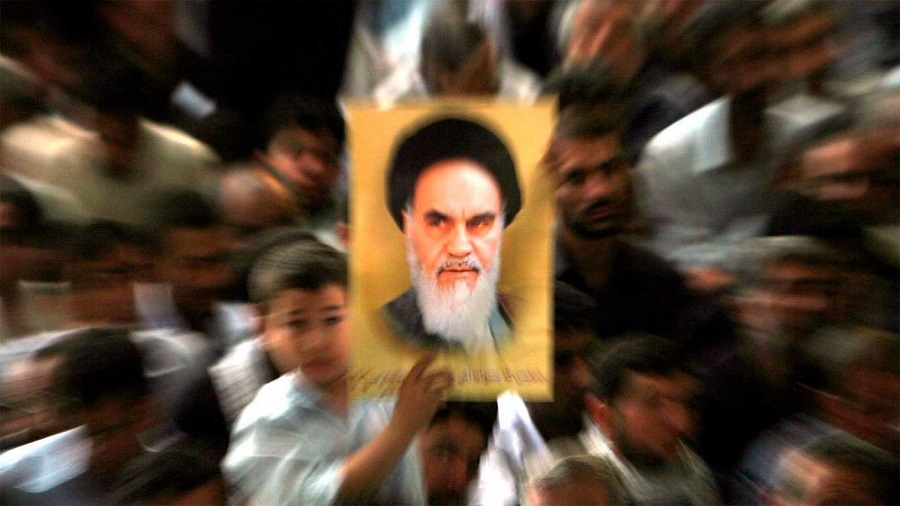
El año del inicio de la guerra en Afganistán (1979) coincide también con el triunfo de la revolución iraní de los ayatollahs y con la llegada al poder ese mismo año en el país vecino, Irak , del dictador Saddam Hussein. La República Islámica de Irán se convertirá rápidamente al terrorismo de Estado, apoyando y financiando al terrorismo internacional. Al mismo tiempo, en el resto del mundo se sucedían acontecimientos de gran transcendencia. El 31 de enero Pekín y Washington establecían relaciones diplomáticas y el presidente Chino Deng Xiaoping iniciaba el proceso de reformas económicas y de apertura al exterior que han transformado China en el país que hoy conocemos. El 26 de marzo Israel y Egipto firmaban un acuerdo de paz, el 3 de mayo Margaret Thatcher ganaba las elecciones que marcaron el inicio de la revolución neoliberal.
Diez años más tarde, con la caída del muro de Berlín, finaliza en 1989 la guerra fría. La Guerra del Golfo en 1991 marcó el inicio de la postguerra fría.
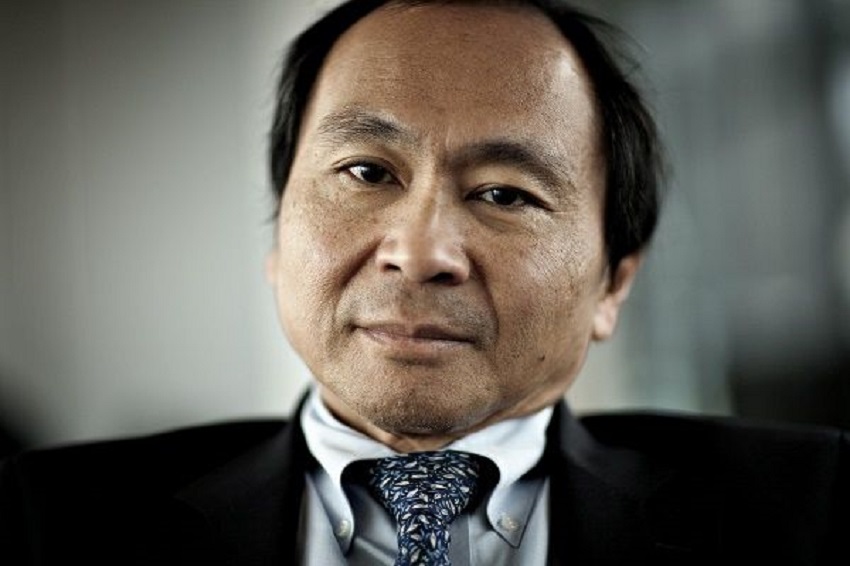
NUEVAS TEORÍAS
Durante ese periodo se divulgan dos teorías que suscitaron mucho debate y polémica. La primera, del historiador americano Francis Fukuyama, que anunciaba, en un tono muy optimista e ingenuo, nada más y nada menos que el final de la historia, como consecuencia del triunfo mundial de la democracia, de la economía de mercado, del estado de derecho, así como del fin de las guerras y de las dictaduras sangrientas.
La segunda teoría, a cargo del politólogo Samuel Huntington, sostenía que los futuros conflictos serían causados por un choque entre civilizaciones, culturas y religiones.
Estas dos teorías fueron muy criticadas y no han sido validadas desde el punto de vista práctico, pero sí que han servido como herramienta para imponer una interpretación del mundo al servicio de la visión ideológica del presidente Georges W. Bush (2001-2009 y sus asesores, representantes de la escuela de pensamiento neoconservadora de relaciones internacionales. Sus representantes más conocidos eran Donald Rumsfeld y Paul Wolfowitz. Y así fue como se fabricaron eslóganes como “el eje del mal” o “el bien contra el mal”, acompañados de una retórica religiosa que aparecía en los discursos del presidente Georges W. Bush citando la Biblia (libro de Ezequiel) diciendo que “Gog y Magog estaban a la obra en Oriente Medio, que Dios está del lado de Israel, que los enemigos del país están del lado del anticristo y que las profecías bíblicas se cumplirán.” Este tipo de amalgamas y mensajes, muy simplistas, causaron mucho malestar en todo el mundo y buscaban sostener confusamente la tesis de un supuesto choque de culturas y civilizaciones.
Amalgamas que no se corresponden por ejemplo con los perfiles de los individuos que cometen atentados terroristas y que tienen en común un profundo desconocimiento del Islam. El perfil de estos terroristas, situados en los márgenes de la sociedad, es el de individuos que se han radicalizado por diversos motivos y que utilizan el Islam como un medio para justificar sus acciones. El itinerario de estos terroristas se corresponde más con el de radicales islamizados que con el de islamistas radicales.
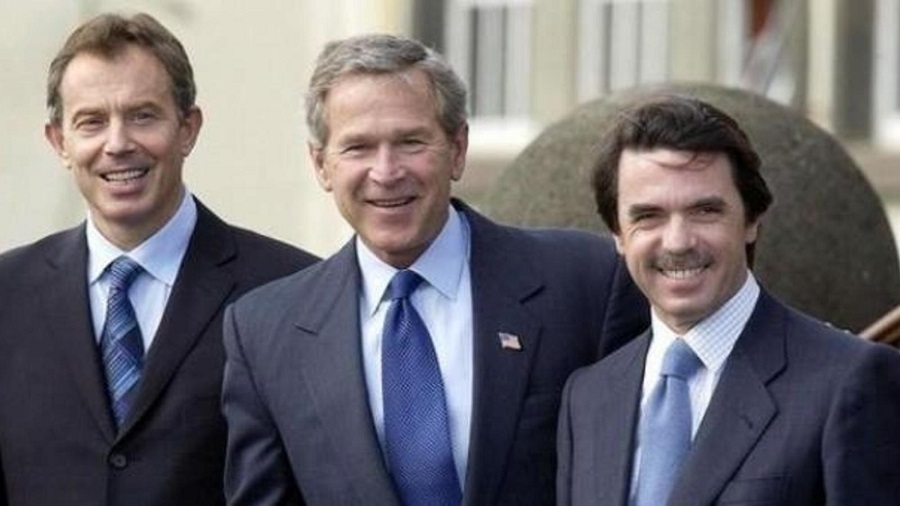
UNA SUCESIÓN DE ERRORES
En diciembre de 2001 la guerra había sido ganada en Afganistán sin invasión alguna, con el apoyo de las fuerzas afganas opuestas a los talibán, el apoyo de la fuerza aérea americana y con el apoyo en tierra de sus fuerzas especiales. En la noche del 16 al 17 de diciembre de 2001, Bin Laden y el grupo de trescientos hombres que le acompañaban consiguen escapar y refugiarse en Pakistán, donde permanecerán diez años. La guerra estaba ganada y no quedaba rastro de Al Qaida en Afganistán, pero, a partir de ese momento, se inicia una sucesión de errores. como la ocupación del país afgano durante veinte años o la guerra en Irak, país que no tenía ninguna relación con el 11 de septiembre, además de renunciar a la captura de Bin Laden en el país vecino, Pakistán, hecho que se produciría solamente diez años después, el 2 de mayo de 2011.
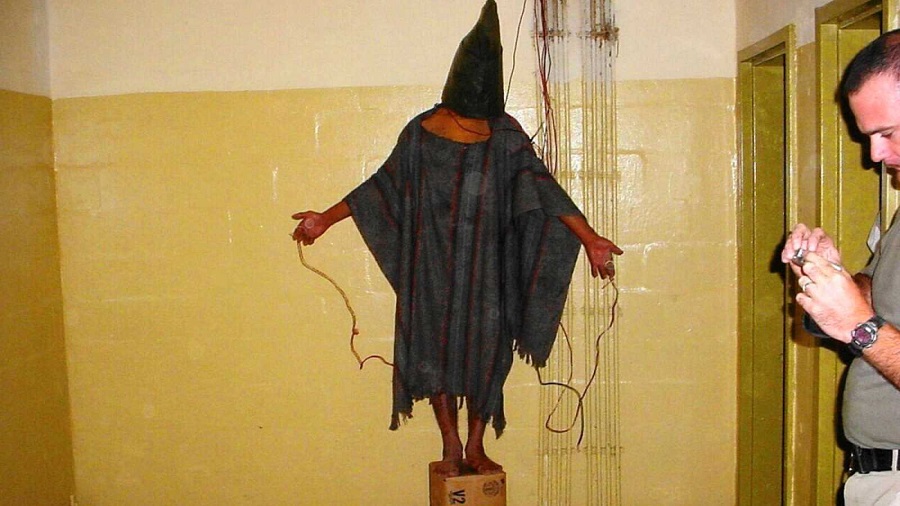
CONCESIONES DEMOCRÁTICAS EN LA GUERRA CONTRA EL TERROR
La democracia se fundamenta en el principio del derecho y la justicia, y no en la venganza. Lo que debería haber sido una victoria de la democracia sobre el terror se convirtió en concesiones de la democracia al terror. Las prisiones de Abu Ghraib y Guantánamo se convirtieron en espacios fuera de la ley y, como reacción a los atentados del 11 de septiembre, Estados Unidos y un gran número de países occidentales cambiaron sus legislaciones (Patriot Act octubre 2001), adoptando medidas restrictivas en materia de derechos individuales y civiles, otorgando poderes exorbitantes a los gobiernos y dejando a la ciudadanía a la merced de posibles abusos de los gobiernos y de las agencias gubernamentales, como la Agencia de Seguridad Nacional NSA en EEUU, o su equivalente británico, la Agencia de Comunicaciones del Gobierno Británico GHCQ.
Estas agencias tienen acceso sin limitación a los datos de todos los ciudadanos. Así pues, una de las consecuencias del 11 de septiembre fue la puesta en marcha de un sistema de vigilancia planetario, convirtiendo en realidad la profecía de Georges Orwell y su novela 1984, en la que todo estaba bajo el control y la supervisión del personaje principal Gran hermano.
En el año 2001 el Gobierno británico, dentro del marco de la legislación antiterrorista, autorizó la creación de tribunales de excepción, que impedían a los abogados de la defensa tener acceso a los informes en los que se recogían imputaciones de las que eran objeto los ciudadanos. Todas estas medidas, además de constituir importantes vulneraciones al derecho y las libertades fundamentales, de poco servían en la prevención de atentados terroristas, cuya eficacia reside principalmente en el trabajo que hacen los servicios de inteligencia en la obtención de la información por medios humanos, es decir, la información obtenida sin hacer uso de la tecnología.

Afortunadamente la situación ha mejorado desde entonces, gracias a la labor de periodistas y lanzadores de alertas, como Edward Snowden, que han revelado desde el interior el modo de funcionamiento de agencias como la NSA, para la cual trabajaba Snowden. Toda esta labor dio sus frutos y en 2015 se produjo un cambio legislativo en EEUU, con la adopción del USA Freedom Act, que introdujo un mayor control legal en las actividades de espionaje.
Además de Edward Snowden, otro caso digno de mención fue la valiente actuación de la agente de inteligencia británica (GCHQ) Katherine Gunn, que había recibido un mensaje de un compañero del NSA en el que se la requería para que espiase a los delegados de los países miembros no permanentes del Consejo de Seguridad de Naciones Unidas, que debían votar en Nueva York la resolución de la ONU autorizando o no la guerra en Irak. Obviamente, se trataba de hacer un trabajo de espionaje y ejercer presiones para que estos países votasen a favor de la intervención en Irak.
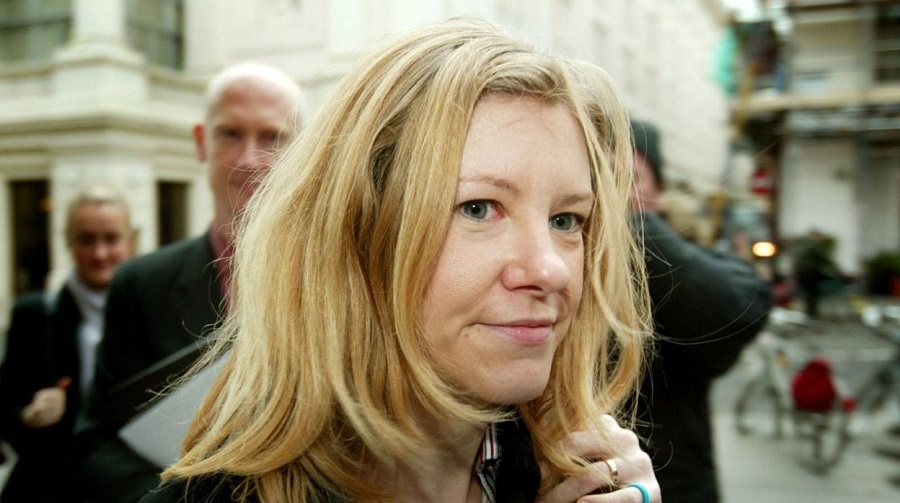
La agente británica decidió en conciencia filtrar la información a la prensa (al periódico británico The Observer) que, después de hacer las verificaciones necesarias, decidió publicar íntegramente la información y los documentos. Su acción no impidió la guerra, pero la intervención militar en Irak se hizo sin el aval de la ONU. La película Secretos de Estado (dirigida por Gavin Hood en 2019) cuenta la historia de Katherine Gunn y muestra cómo la agente británica, asesorada por un equipo de abogados, consiguió poner en jaque desde un punto de vista legal al gobierno británico de Tony Blair.
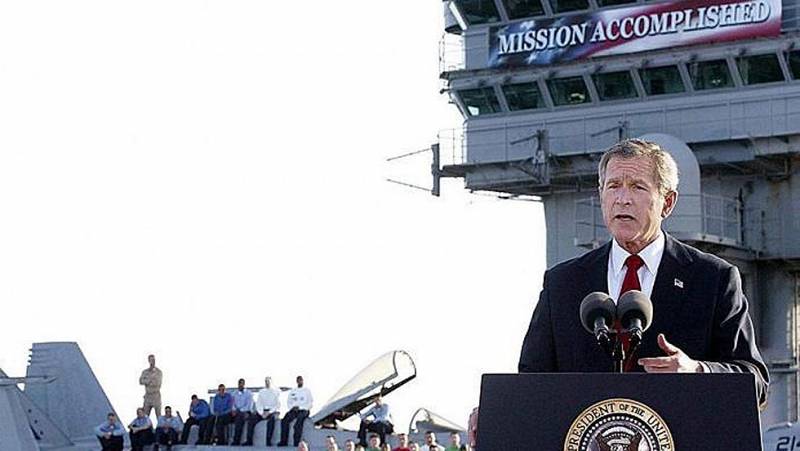
LA NEOCONSERVADORA POLÍTICA EXTERIOR DE GEORGES W. BUSH
Los cinco principios neoconservadores de la política exterior de Georges W. Bush, en los que se basó toda su estrategia, fueron los siguientes:
1.-El internacionalismo
Estados Unidos tiene que tener una presencia activa en el mundo y dejar de lado la tentación del aislacionismo.
2.-La primacía
EEUU se considera a sí mismo un país de excepción, que debe liderar el sistema internacional.
3.- El unilateralismo
El convencimiento que el poder americano es el que garantiza el poder y la seguridad al resto del mundo y no las instituciones internacionales, como, por ejemplo, Naciones Unidas.
4.- El militarismo
La necesidad de tener importantes recursos militares, gracias a un gasto en defensa elevado.
5.- La democracia
La creencia de que se puede implantar este modelo político en todas partes y que se pueden cambiar por la fuerza los regímenes políticos de otros países.
La Guerra en Irak (2003) fue una aplicación práctica de estos principios. Se actuó sin el acuerdo de Naciones Unidas y sin tener en cuenta el informe de los inspectores de la ONU, que habían concluido que no había armas de destrucción masiva en suelo iraquí. La ocupación americana en Irak se terminó en 2011, pero este periodo de transición duró poco, ya que tuvieron que regresar de nuevo, en 2014, cuando el Estado Islámico (ISIS) fue creado.
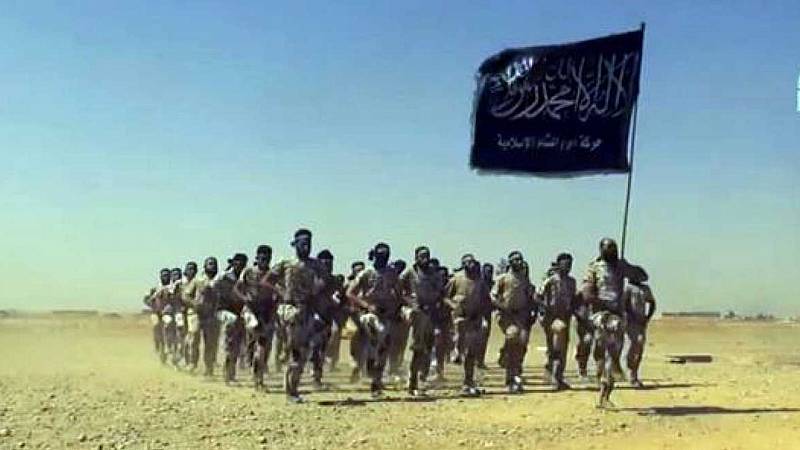
EL ESTADO ISLÁMICO, IRAK Y SIRIA
El ISIS entra en escena como una escisión de Al-Quaida en Irak. El ISIS ocupó dos de las ciudades más importantes del norte de Irak Mosul y Al–Raka (convertida en la capital del ISIS). El Estado Islámico combatía al mismo tiempo en el país vecino, Siria, (en guerra civil desde 2011) contra el dictador Bachar El Assad, y también contra el ejército rebelde apoyado por los países occidentales y del golfo.
El ejército rebelde sirio, al igual que ISIS, buscaba derrocar al dictador Bachar El Assad, que finalmente ha conseguido mantenerse en el poder hasta el día de hoy gracias al apoyo militar de Vladimir Putin, quien intervino en su favor en 2015.
En Irak, el ISIS, durante su período de ocupación (2014-2017) contó con el apoyo de miembros del antiguo partido Baas de Saddam Hussein, que pertenecen a la minoría sunita que ha dirigido Irak desde 1638 a 2003. Los yihadistas en Irak apoyan a los sunitas contra los chiitas, que representan la mayoría musulmana tanto en Irán como Irak.

Dos años antes, El 30 de agosto de 2013, el presidente de EE.UU. Barak Obama renunció a una intervención aérea contra la Siria de Bachar El Assad. Obama había advertido al dictador de que, en el caso de utilización de armas químicas, Estados Unidos intervendría aéreamente en el país. Bachar el Assad utilizó estas armas y Barack Obama decidió, después de sopesar todas las opciones, no intervenir.
Esta no intervención fue una decisión de gran calado, ya que anunciaba un cambio en la política exterior americana y sentó un precedente para la futura retirada definitiva de tropas en países como Afganistán. Una decisión que ha sido ratificada por sus sucesores Donald Trump y Joe Biden.
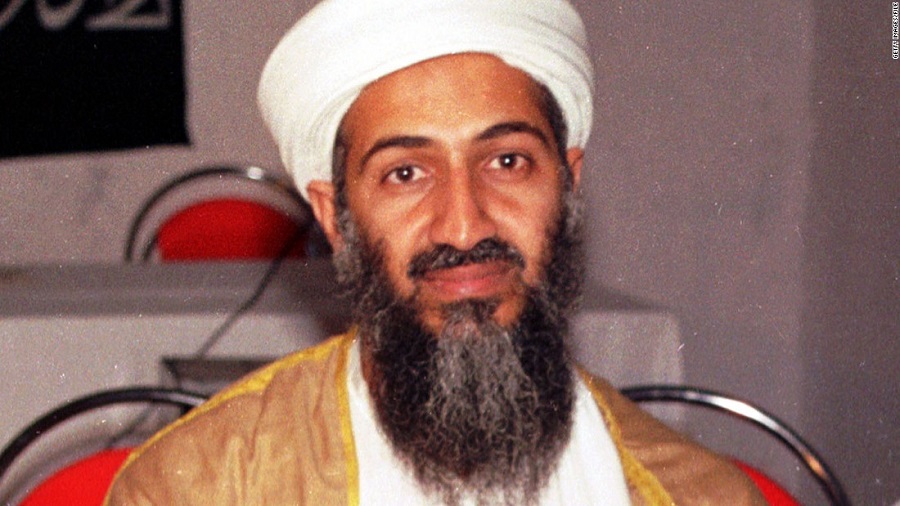
11-S, LA EXITOSA ESTRATEGIA DE BIN LADEN
Para los observadores más lúcidos, como Aimen Dean (Nine lives: My time as the MI6´s Top Spy inside Al-Qaeda, London Overworld Publications, 2018), agente de los servicios secretos británicos (MI6) infiltrado en Al -Quaeda, el objetivo que perseguía Bin Laden con los atentados del 11 de septiembre era muy claro. Se trataba de provocar a Estados Unidos para que interviniese militarmente en países musulmanes, lo que suscitaría un descontento en una parte de la población y contribuiría al desarrollo del yihadismo internacional. Un objetivo que Bin Laden y su organización han logrado con creces, cuando miramos la serie de atentados, el impacto producido, y el trágico número de víctimas: Bali (2002), Madrid (2004), Londres (2005), Nairobi (2013), en Irak, Sinjar y Tikrit (2014), París (2015), Niza (2016), Bruselas (2016), Berlín (2016), Barcelona y Cambrils (2017), Manchester (2017), Mogadiscio (2017) …
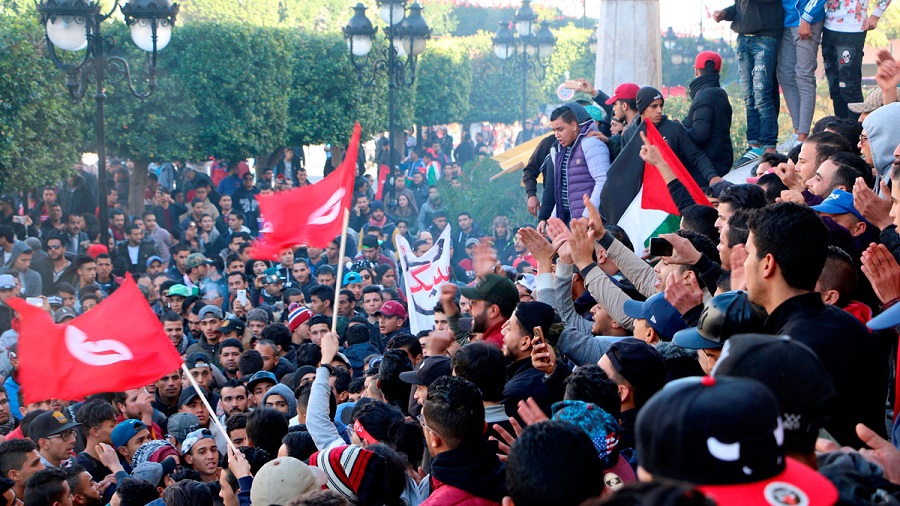
2010, LA PRIMAVERA ÁRABE
La llamada “Primavera Árabe”, un movimiento en favor de la democratización en los países árabes iniciado en Túnez, suscitó gran entusiasmo y esperanza, y obligó a dictadores como Ben Ali (Túnez) y Hosni Mubarak (Egipto) a abandonar el poder. Desafortunadamente, la alegría fue de corta duración y duró hasta el golpe de Estado en Egipto del Mariscal Al-Sissi (2013), que fue respaldado por la comunidad internacional, además de la guerra civil en Libia, Siria y Yemen, así como la decisión reciente del presidente tunecino, Kais Saied, de suspender y cerrar el Parlamento, excluyendo de esta manera al principal partido del país, Ennahda.
En muchos países musulmanes la decepción de la población es grande, porque ha visto frustradas sus aspiraciones de cambio mediante el voto y las elecciones.
YIHADISMO: MÁS LOCAL Y MENOS GLOBAL
El yihadismo es ahora más local y menos global. El Yihadismo está hoy más asociados a conflictos locales en países como Yemen, Mozambique, Mali, Siria, Afganistán, Irak… Los yihadistas en estos territorios actúan ahora en función del contexto local, dejando de lado la perspectiva internacional. La principal amenaza, en términos de terrorismo internacional, procede de los restos del ISIS en Siria.
En Afganistán, el enemigo principal de los talibán es el ISIS, autor del atentado del aeropuerto de Kabul del 26 de agosto. ISIS está presente en las provincias afganas de Kunar y Nangarhar, en el noreste del país, en la frontera con Pakistán.
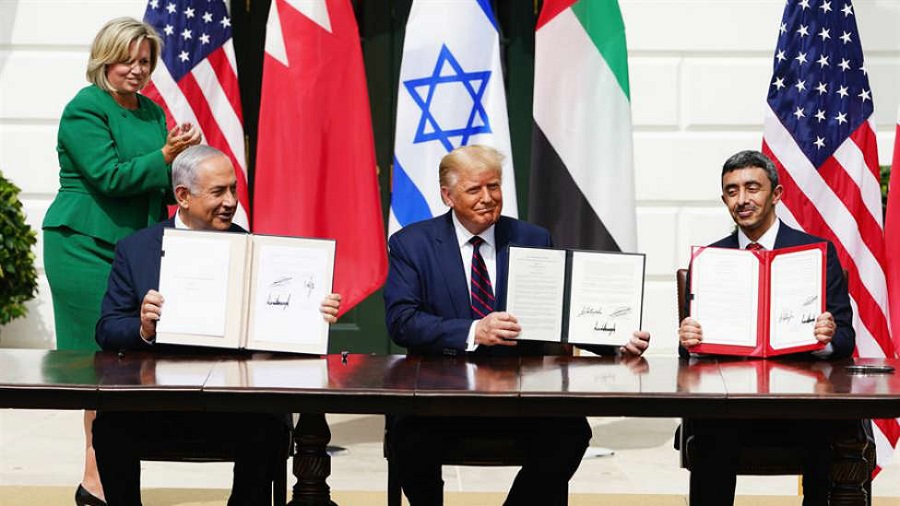
ACUERDOS DE ABRAHAM Y LA RIVALIDAD SINO-AMERICANA
“No importa si el gato es negro o blanco, mientras pueda cazar ratones es un buen gato” (Den Xiaoping, presidente de China (1978-1992).
Con la decisión del presidente Obama de no intervenir en Siria, Estados Unidos renunció a una estrategia de veinte años, basada en el control territorial y en la construcción de estados (State Building).
La retirada de Afganistán es un fracaso político. EEUU ha gastado más dinero allí que en todo el plan Marshall que sirvió para financiar la reconstrucción europea después de la II Guerra Mundial. Un fracaso, pero no una derrota militar, como sí lo fue en su día Vietnam, cuando este país pasó del lado del enemigo soviético.
En realidad, Estados Unidos no tiene ningún interés estratégico en Asia Central. Ni tampoco afecta a la situación allí lo que pasa en Oriente Medio, una región en la que los americanos ya no tienen el mismo interés estratégico. El petróleo ya no es tan importante e Israel garantiza ahora su seguridad por sus propios medios, gracias a su alianza de cooperación y seguridad con los países árabes.
Los Acuerdos de Abraham (15 de septiembre de 2020) un acuerdo con los Emiratos Árabes y Bahréin, al que pronto se unirán más países árabes y de la zona del golfo, entre ellos Arabia Saudí.
Por otro lado, la cuestión palestina sigue sin resolverse y ha pasado además a un segundo plano. Esta alianza permitirá a estos países actuar como una potencia regional y garantizar su seguridad frente al enemigo común, Irán. Para Turquía, Irán también es una amenaza. Tanto en Asia Central, donde China es la potencia regional principal, como en Oriente Medio, se ha vuelto al juego de las potencias regionales.
La prioridad ahora de la Administración Biden es ocuparse de las cuestiones de política interior, el fin de la pandemia, la recuperación económica y la transición ecológica, pero sobre todo de China el gran rival económico, comercial y militar de Estados Unidos.
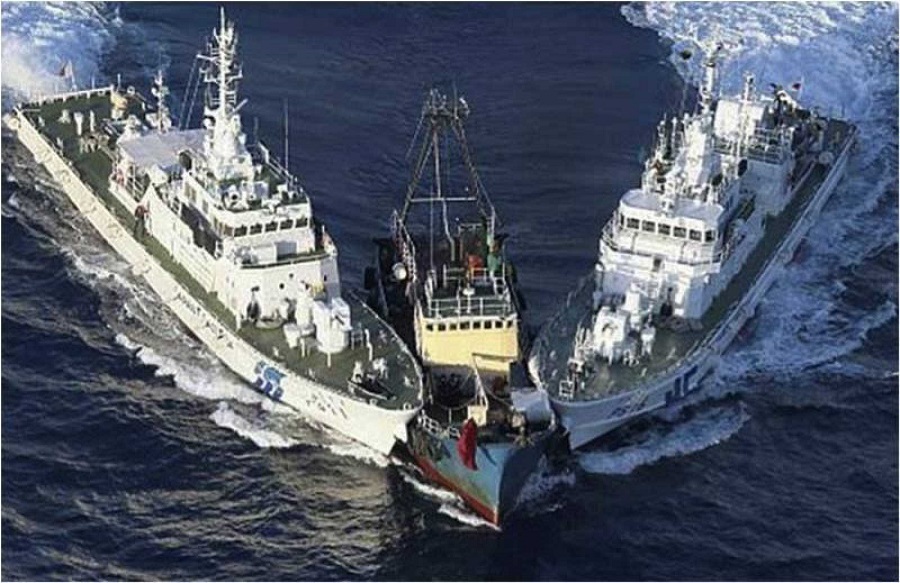
CHINA/EE.UU. ¿UNA NUEVA GUERRA FRÍA?
¿Las tensiones en el Mar de la China Meridional pueden dar lugar a una nueva guerra fría?
Este espacio geográfico está situado al sur de las costas chinas, bordeando Filipinas al este, Malasia y Brunei al sur y Vietnam al oeste. China considera que tiene unas reivindicaciones “históricas”, la línea de 9 puntos que “hace suya” desde 1947 y que no ha sido aceptada por el Tribunal Internacional de Arbitraje de la Haya. Pero los otros países ribereños también tienen sus reivindicaciones.
El anhelo expansionista chino es fuente de tensiones importantes, ya que China no quiere respetar la Convención de Montego Bay, que otorga a cada país una zona económica exclusiva de 200 millas náuticas a partir de sus costas. El mar de China meridional es una zona estratégica de gran importancia, ya que por ahí transita el 80% del comercio marítimo mundial, comunicando Asia, Europa y Oriente Medio a su paso por el estrecho de Malacca. Por este motivo, tanto China como Estados Unidos tienen bases navales en la región, en Zhanjiang y Okinawa respectivamente. Además, puertos importantes se encuentran allí, como Singapur, el segundo más importante del mundo, Hong Kong, Shenzhen y Guangzhou. Además, el mar de la China meridional es también rico en recursos naturales, como gas y petróleo. Por todo eso, las tensiones en la región son permanentes y se han recrudecido en los últimos tiempos.
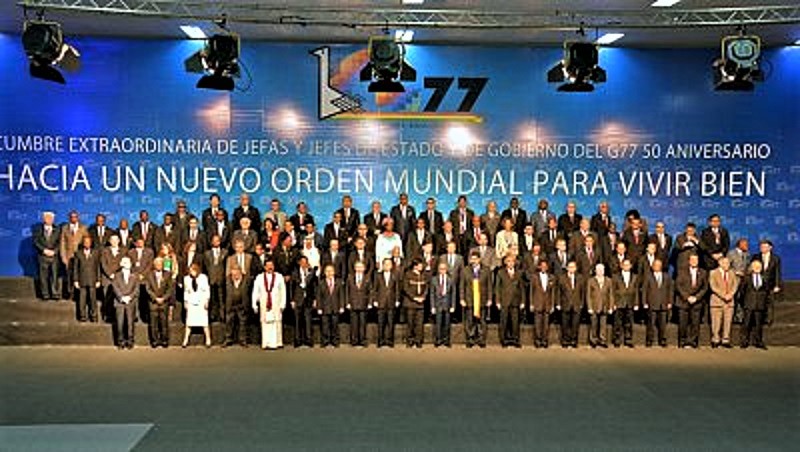
¿CÓMO SERÁ EL NUEVO ORDEN MUNDIAL?
Como será el nuevo orden mundial, es la pregunta que nos hacemos todos.
Estados Unidos ha designado a China como su principal rival, tanto a nivel económico, como comercial y militar. China sustituye a Rusia en este papel. Rusia suele estar más alineada ahora con China, aunque, según las cuestiones, el país que preside Putin es versátil y no hay que excluir que en el futuro mantenga una equidistancia entre los dos bloques. No así la Unión Europea, que mantendrá sus lazos privilegiados con Estados Unidos.
Rusia, que anexionó Crimea en 2014, un territorio que pertenecía a Ucrania, no ve con buenos ojos que un país en su frontera pueda convertirse en miembro de la Unión Europea.
Al mismo tiempo que miramos a la prospectiva es necesario resaltar las tres lecciones de los últimos veinte años que Javier Solana, ex Secretario General de la OTAN y ex Alto Representante de las Relaciones Exteriores de la UE, ha resumido con precisión:
“La fuerza militar no vale para cambiar regímenes; no se puede ignorar a los actores regionales en escenarios de guerra; y Europa no puede depender de EEUU en su acción exterior”.
VERSIÓN INGLESA
From Manhattan to Kabul and the Beginning of a New Era
11th September,2001 – 31st August 2021
Impalpable and intangible, it leaves no trace; mysterious as a divinity, he is inaudible, and this is how he puts the enemy at his mercy (Sun Tzu).
The September 11th attacks brought the end to historical innocence of a city and a country that had until then managed to escape the scene of a world war in its own territory. New York, a city that historically immersed in an economic and urban development of capitalism. A city, so masterfully described by Frank Kafka (´America´) and John Dos Pasos (´Manhattan Transfer´) with greatness and misery, harshness, and vertigo, excess and fascination.
On the morning of September 11th, the city suffered an urbicide caused by terrorist violence from an enemy that did not respond to the classical principles of war. There was neither front nor battlefield to confront, and as before in Beirut, Sarajevo or Grozny, the city was converted that tragic morning into a devastating scene of destruction caused by the violence and barbarism of suicide bombers.
The Year of 1979
This form of terrorism as we know it today made its appearance in the 1970´s in areas of warlike confrontation such as the Lebanon War (1975) and the Afghanistan War (1979). In Lebanon, the terrorist organization ´Hezbollah´, committed its first terrorist attack in 1983 against the French and US military. In Afghanistan, the Mujahideen (Islamic fundamentalists) were fighting against the Soviet invaders and the future leaders of Al-Qaeda, Osama Bin Laden and Ayman al Zawahiri, were already amongst these extremists. The Mujahideen had at all times the necessary financial and logistical support from the United States, Saudi Arabia, and Pakistan in their opposition to the Soviets. The beginning of the war in Afghanistan (1979) also coincided with the triumph of the Ayatollahs, (Iranian revolution) and with the coming to power that same year in the neighbouring country of Iraq, the dictator Saddam Hussein.
The Islamic Republic of Iran would then quickly become a terrorist state by supporting and financing international terrorism. At the same time in the rest of the world, events of great importance were happening. On January 31st, Beijing and Washington established diplomatic relations and the Chinese President Deng Xiaoping began the process of economic reforms by opening up to the outside world, transforming China as we know today. On March 26th Israel and Egypt signed a peace agreement. On May 3rd Margaret Thatcher won the elections that marked the beginning of the neoliberal revolution.
Ten years later, with the fall of the Berlin Wall, the Cold War ended in 1989. The Gulf War in 1991 marked the beginning of the post-cold war.
New Theories
It was during this period when two theories were disclosed that aroused much debate and controversy.
The first theory, by the American historian Francis Fukuyama, announced a very optimistic and naive way that it was nothing more and nothing less than the end of history, as a consequence of the world triumph of democracy, the market economy, the rule of law, as well as the end of wars and bloody dictatorships.
The second theory, by the political scientist Samuel Huntington argued that future conflicts would be caused by a clash between civilizations, cultures and religions.
These two theories were highly criticized and were not validated, but they have served as a tool to impose an interpretation of the world at the service of the ideological vision of President George W Bush (2001-2009) and his advisers of the neo-conservative school of thought of international relations. The best known representatives were Donald Rumsfeld and Paul Wolfowitz. This is how slogans such as the axis of evil, good against evil, were fabricated, which were accompanied by the religious quotes from the bible in the speeches of President George W Bush quoting the book of Ezekiel saying that “Gog and Magog were at work in the Middle East that God is on the side of Israel and that the enemies of the country are on the side of the antichrist and that the biblical prophecies will be fulfilled”.
All this manipulation and simplistic messages caused a lot of discomfort around the world and were intended to entertain confusion, strongly the thesis of a supposed clash of cultures and civilizations.
This Amalgamation didn’t correspond to the profiles of the individuals who commit terrorist attacks and who have got in common a profound ignorance of Islam. The profile of these terrorists located on the margins of society was that of individuals who have become radicalized for various reasons and who use Islam as a means to justify their actions. The itinerary of these terrorists corresponds more to that of Islamised radicals than to that of radical Islamists.
A succession of Mistakes
In December 2001, the war had been won in Afghanistan without any invasion, with the support from Afghan forces opposed to the Taliban, and assisted by the American air and special ground forces. On the night of 16th December 2001, Bin Laden and the group of 300 men that accompanied him, managed to escape and take refuge in Pakistan where he was able to remain for 10 years. The war was won, and there was no trace of Al Qaeda in Afghanistan, but from that moment on, a series of errors began to take place such as the occupation of Afghanistan for 20 years and the war in Iraq, a country that had no relation to September 11th. In addition, the capture of Bin Laden was abandoned in Pakistan and only ten years later on May 2nd 2011, American special ground forces (Navy Seals) captured and killed him.
Democratic Concessions in the War on Terror
Democracy is based on the principle of law and justice and not on revenge. What should have been a victory for democracy over terror became concessions of democracy to terror. The prisons of Abu Ghraib and Guantánamo became illegal spaces. In reaction to the September 11th attacks, the United States and a large number of western countries changed their laws (Patriot Act October 2001) adopting restrictive measures on individual rights, granting exorbitant powers to governments and leaving citizens at the mercy of possible abuse by governments and government agencies. To name a couple, The National Security Agency (NSA) in the US or its British equivalent Government Communications Headquarters (GCHQ). These agencies have unlimited access to the data of all citizens. One of the consequences of September 11th, was the launch of a planetary surveillance system, making the prophecy of George Orwell´s novel 1984 a reality in that everything was under the control and supervision of the main character Big Brother.
In 2001, the British Government, within the framework of anti-terrorism legislation, authorised the creation of emergency courts that prevented defence lawyers from having access to the reports in which the accusations made against citizens were collected. These measures constituted important violations of rights and fundamental freedoms that were of little use in the prevention of terrorist attacks. The main effectiveness of intelligence services is by obtaining information from human sources (i.e informants), without using technology.
Fortunately, the situation has improved since then, thanks to the work of journalists and whistle blowers, such as Edward Snowden, who had revealed from the inside the mode of agency operations such as the NSA for which Snowden worked. All this work paid off and in 2015 there was a legislative change in the US with the adoption of the USA Freedom Act that introduced greater legal control over surveillance activities.
Another high-profile case was the brave performance of a British Intelligence Agent Katharine Gun (working for GCHQ), who had received a message from a colleague at the NSA in which she was required to spy on delegates from non-member countries of the United Nations Security Council (who were to able to vote in New York for the UN resolution authorising or not authorising the war in Iraq). Obviously, it was about doing surveillance and exerting pressure for these countries to vote in favour of the intervention in Iraq. The British agent consciously decided to leak the information to the press (The Observer), which after making the necessary verifications she decided to fully publish the information and documents. Her action did not prevent the war, but the military intervention in Iraq was carried out without the endorsement of the UN. The film Secrets of State (2019, directed by Gavin Hood) tells the story of Katharine Gun and shows how the British agent was advised by a team of lawyers and managed to put Tony Blair’s government in check from a legal point of view.
The 5 Neo-conservative Principles of George W Bush Foreign Policy.
- Internationalism -The United States must have an active presence in the world and put aside the temptation of isolationism.
- Primacy – The United States considers itself a country of exception that must lead the international system.
- Unilateralism – The conviction that The United States is the only country that guarantees power and security to the rest of the world and not international institutions such as the United Nations.
- Militarism – the need to have significant military resources with a substantial defence budget.
- Democracy – belief that this political model can be implemented everywhere and that the political regimes of other countries can be changed by force.
The Iraq war (2003) demonstrated the use of all these principles. It acted without the agreement of the United Nations and without considering the report of the UN inspectors who had concluded that there were no weapons of mass destruction on Iraqi soil. The American occupation in Iraq ended in 2011, but this transition period was short lived since they had to return again in 2014, when the Islamic State (ISIS) was created.
The Islamic State, Iraq and Syria.
In Iraq ISIS (Islamic State) then appears on the scene as an Al-Qaeda split. ISIS occupied two of the most important cities in northern Iraq, Mosul and Al-Raka (the latter of which became the capital of ISIS). ISIS fought at the same time as its neighbouring country Syria, (in a civil war, since 2011) against both the dictator Bashar El Assad and also the rebel army supported by the western and gulf countries. The Syrian Rebel Army and ISIS sought to overthrow the dictator Bashar El Assad who has managed to stay in power to this day thanks to the military support of Vladimir Putin, who intervened on Assad´s behalf in 2015. In Iraq, ISIS during its period of occupation (2014-2017) was supported by members of Saddam Hussein’s former Ba´ath party who belonged to the Sunni minority that has led Iraq from 1638 to 2003. Jihadists in Iraq support the Sunnis against the Shiites, who represent the Muslim majority in both Iran and Iraq.
Two years earlier, (August 30th, 2013), President Obama refused to authorise air strikes against Bashar El Assad’s Syria. Obama had warned the dictator that in the case of the use of chemical weapons, the United States would intervene in the country by air. Bashar Assad was using these weapons but Barack Obama, after weighing up all the options, decided not to intervene.
This non-intervention was a far-reaching decision since it announced a change in American foreign policy and set a precedent for the future. There was a definitive withdrawal of troops in countries like Afghanistan. A decision that has been ratified by his successors Donald Trump and Joe Biden.
The attacks of September 11th Bin Laden successful strategy
For the most lucid observers such as Aimen Dean, agent of the British Secret Services (MI6), (his book ´Nine lives: My time as MI6’s Top Spy inside Al-Qaeda´ London, Overworld publications, 2018) who infiltrated Al-Qaeda. Bin Laden´s objective that was to follow the September 11th attacks was very clear. He wanted to provoke the United States to invade Muslim countries, of which would cause discontent among part of the population and contribute to the recruitment of international jihadists. Bin Laden and his organisation successfully achieved their objective as we remember the series of attacks, the impact that they have made, and the tragic number of victims.
Eg. Bali (2002) Madrid (2004), London (2005), Nairobi (2013), Iraq, (Sinjar and Tikrik,2014), Paris (2015), Nice (2016), Brussels (2016), Berlin(2016), Barcelona and Cambrils (2017), Manchester (2017), Mogadishu (2017) …
The Arab Spring 2010
This movement for democratisation in Arab countries started in Tunisia and generated great enthusiasm and hope which forced dictators like Ben Ali (Tunisia) and Hosni Mubarak (Egypt) to leave power. Unfortunately, the joy was short-lived and hard, until Marshal Al-Sissi’s coup in Egypt (2013) which was backed by the international community, in addition to the civil war in Libya, Syria and Yemen as well as the recent decision of the Tunisian President Kais Saied to suspend and close parliament, excluding the main party, Ennahda party. In many Muslim countries the population´s disappointment is great because they have seen their aspirations for changing the political system through voting and their elections have been compromised.
Jihadism is now more local and less global
Jihadism is today more associated with local conflicts in countries such as Yemen, Mozambique, Mali, Syria, Afghanistan, and Iraq. The jihadists in these territories now act according to the local context in those territories, leaving aside the international perspective. The main threat in terms of international terrorism comes from the remnants of ISIS in Syria. In Afghanistan, the main enemy of the Taliban is ISIS, the perpetrators of the Kabul airport bombing on August 26th 2021. ISIS is present in the Afghan provinces of Kunar and Nangarhar in the northeast of the country on the border with Pakistan.
The Beginning of a New Era
It doesn’t matter if the cat is black or white, as long as he can catch mice, he is a good cat (Den Xiaoping, President of China (1978 -1992)
Abraham Accords and the Sino-American Rivalry
With President Obama’s decision not to intervene in Syria, the United States renounced a 20 year strategy based on territorial control and state building. The withdrawal from Afghanistan is a political failure, the US has spent more money there than in the entire Marshall plan that served to finance European reconstruction after World War II. A failure, but not a military defeat, as if Vietnam was in its day when this country passed the side of the Soviet enemy. In reality, the United States has no strategic interest in Central Asia. Nor does the situation there affect what happens in the Middle East, a region in which the Americans no longer have the same strategic interest. Oil is no longer so important and Israel now guarantees its security by its own means thanks to its cooperation and security alliance with the Arab countries. The Abraham Accords (September 15th, 2020) an agreement with the United Arab Emirates and Bahrain that will soon be joined by more Arab and Gulf countries, including Saudi Arabia. On the other hand, the Palestinian question remains unresolved and has also taken a back seat. This alliance will allow these countries to act as a regional power and guarantee their security against the common enemy, Iran. For Turkey, Iran is also a threat. Both in Central Asia, where China is the main regional power, and in the Middle East, the game of regional powers has returned.
The priority now of the Biden Administration is to deal with domestic policy issues, the end of the pandemic, economic recovery and ecological transition, but above all China, the great economic, commercial and military rival of the United States.
South China Sea -A New Cold War?
South China Sea is the geographic space located to the south of the Chinese coasts bordering the Philippines to the east, Malaysia and Brunei to the south and Vietnam to the west. China considers that the 9 point line that it has «endorsed» since 1947 has «historical» claims that have not been accepted by the International Court of Arbitration at The Hague. The other neighbouring countries also have their demands. The Chinese expansionist desire is a source of important tensions since China does not want to respect the Montego Bay Convention that grants each country an exclusive economic zone of 200 nautical miles from its coasts. The South China Sea is a strategic area since 80% of the world maritime trade (by volume) passes through it, coonnecting Asia, Europe and the Middle East as it travels through the Strait of Malacca. For this reason, both China and the United States have naval bases in the region in Zhanjiang and Okinawa respectively. The important ports there are Singapore (the second most important in the world), Hong Kong, Shenzhen and Guangzhou. Besides all this, the South China Sea is also rich in natural resources (gas and oil). Tensions in this region are permanent.
What will the new International order be like?
The United States has designated China as its main rival economically, commercially and militarily. China replaced Russia which tends to be more aligned now with them, although if issues arouse, Russia can be adaptable, taking the opposite side and it should not be excluded that in the future it maintains an equidistance between the two blocks. On the other hand The European Union will maintain its privileged ties with the United States. Russia annexed Crimea in 2014, that belonged to Ukraine. Russia does not welcome the idea that a country (i.e Ukraine) on its border could become a member of the European Union.
As we foresee the future, it is necessary to highlight the three lessons of the last 20 years that Javier Solana (former NATO Secretary General and former High Representative of the European Union for Foreign Affairs and Security Policy ) has summarized with precision:
“Military force is not valid to change regimes; regional actors cannot be ignored in theatres of war; and Europe cannot depend on the US for its foreign action”.
(Iván Cedrón Adam es un profesional con una amplia formación académica en Lenguas extranjeras, Literatura francesa, Derecho, Management y Liderazgo, y un gran conocedor del mundo anglosajón y de Francia y Gran Bretaña, países donde ha vivido durante dos décadas).
SOBRE EL AUTOR
Iván Cedrón Adam, prototipo de europeo moderno y activo y experto europeísta
OTROS REPORTAJES
La España de Colón no es la España del siglo XXI
Los mitos, una amenaza para la convivencia
El renacer de una ciudad de frontera
Estados Unidos, 3 de noviembre, un momento verdaderamente histórico
El Reino Unido, en una encrucijada histórica


